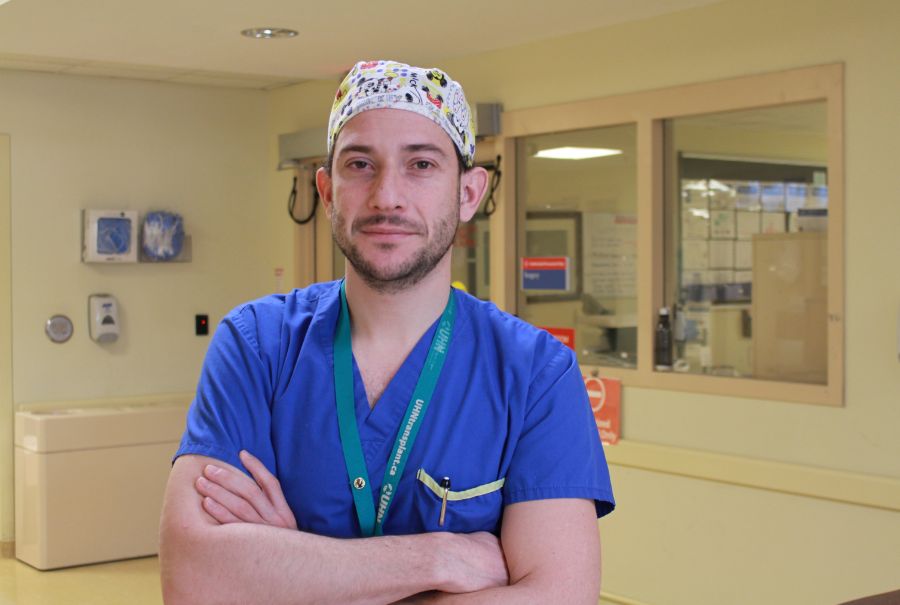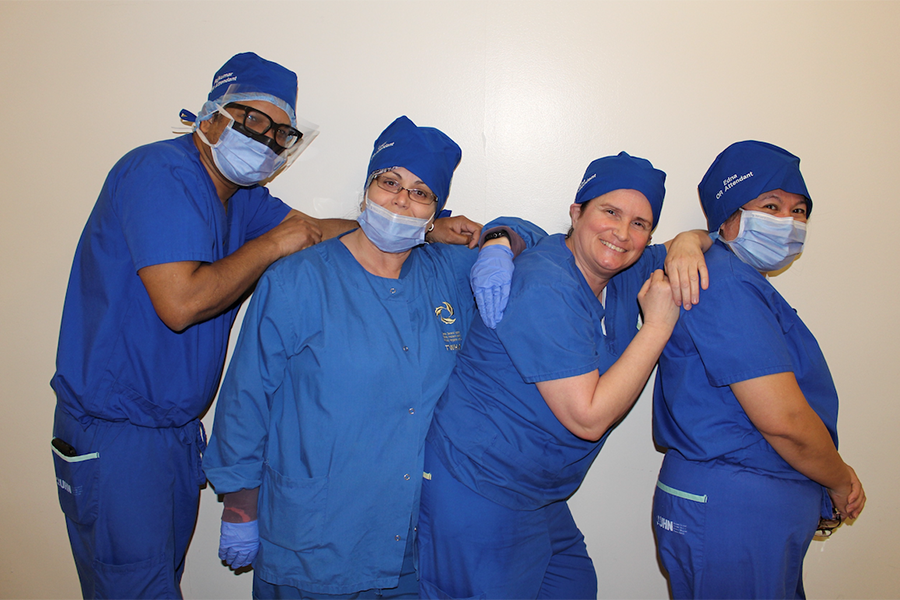Sprott Surgery’s new Head of the Division of Surgical Oncology, Dr. Girish Kulkarni, wants to combat cancer with cutting-edge research. (Photo: Regina Garcia)
Since joining University Health Network (UHN) a decade ago, Dr. Girish Kulkarni has become one of surgical oncology’s pioneering surgeon-scientists. While his research centres around bladder cancer and understanding how this disease impacts different populations and people’s overall quality of life, he’s also working to bring this field into the future. In January 2021, Dr. Kulkarni was appointed Head of the Division of Surgical Oncology in the Sprott Department of Surgery – which encompasses Toronto General Hospital, Toronto Western Hospital and the Princess Margaret Cancer Centre, all part of UHN – a prestigious position that allows him to combine his passion for helping patients with his drive to further the study of oncology. We spoke to Dr. Kulkarni about his new role and the innovative research happening in his department.
What’s your area of expertise?
GK: I specialize mainly in pelvic malignancies like bladder cancer, prostate cancer and penile cancer, and provide surgical support for other colleagues that need it – for example in the sarcoma and colorectal world, in multi-team cases. From a research perspective, most of my research is in bladder cancer – it happens to be the most expensive cancer to treat. Cancers in the bladder are rapidly recurring, which contributes to the expense. We put out one fire and then three months later it’s back and we have to treat it again. Fortunately, bladder cancer-related clinical trials have really taken off because of immuno-oncology and immunotherapies being used in this space, and these will hopefully lead to decreased recurrences.
Why do you think Sprott Surgery has one of the leading surgical oncology divisions in the world?
GK: We tackle the most difficult surgical cases around, so we can give a fighting chance to those individuals who may not have had hope outside our walls. We can also provide the best possible cancer outcomes, in my humble opinion, for those with more straightforward cancers. Why? Because everyone here is dedicated to providing patients with the best-quality surgery – it’s a rigorous process to be able to work within Sprott Surgery. The rate of intraoperative errors or perioperative errors is very low, and the chance of having the best possible outcome is greater because Sprott’s surgeons are world leaders and understand where we are, where we have been and where we need to go.
Where do you see surgical oncology going?
GK: With new innovations and new systemic therapies, we are moving more toward minimally invasive procedures and more multidisciplinary treatments of cancers. So, it’s not just a single surgeon taking out a tumour, but an interplay between radiation oncology, medical oncology and surgical oncology to treat and cure as many patients as possible. For example, one surgical innovation we’ve talked a lot about at UHN is fluorescent technology. It’s being used in robotics, and also in endoscopic resections. In fact, I recently gave a talk on fluorescence in bladder cancer – with certain chemical agents the tumours will glow a specific colour so you can actually see and treat them better, and we have that occurring right now at Sprott Surgery.
What role do you think Sprott Surgery will play in the future?
GK: Toronto General Hospital is the number-four hospital in the world and the best in Canada, and Princess Margaret Cancer Centre is the best cancer centre in Canada, consistently ranking in the top five in the world in terms of research productivity. So, as surgeons, we have a real opportunity to advance the research agenda and improve outcomes for our patients, not only through surgical care but also through advances in precision medicine and improvements in quality of care. I’m hoping we can expand our footprint in the world of clinical trials as well. That could be intraoperative trials, trying one technique over another or a new innovation over another. Also, perioperative trials – where we provide therapy before surgery or right after to improve surgical outcomes. There are countless possibilities.
Do you have any personal goals as the new Head of the Division of Surgical Oncology at Sprott Surgery?
GK: One goal for myself is to ensure we employ surgeons of diverse backgrounds. There are a lot of opportunities to include individuals from different ethnic backgrounds and different sex or gender identities, which can improve representation in our community and contribute to optimal care as well. We’ll have different viewpoints and we may also be able to reach different populations knowing their cultural backgrounds. Staying on top of that will help us recruit the best people in the world.
Read more in the Sprott Department of Surgery magazine.


